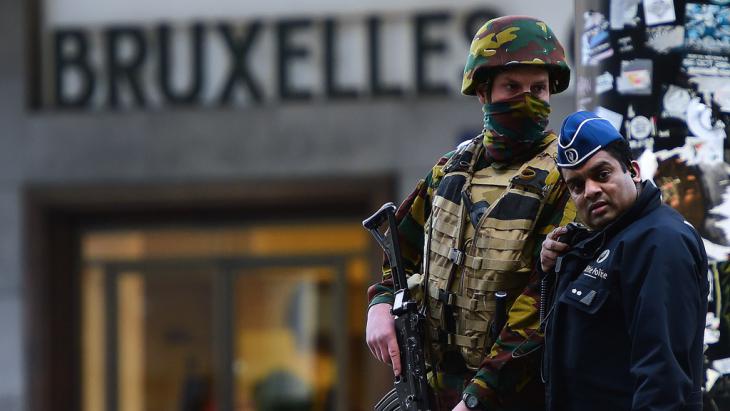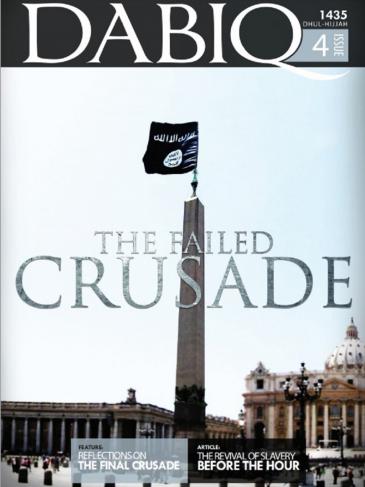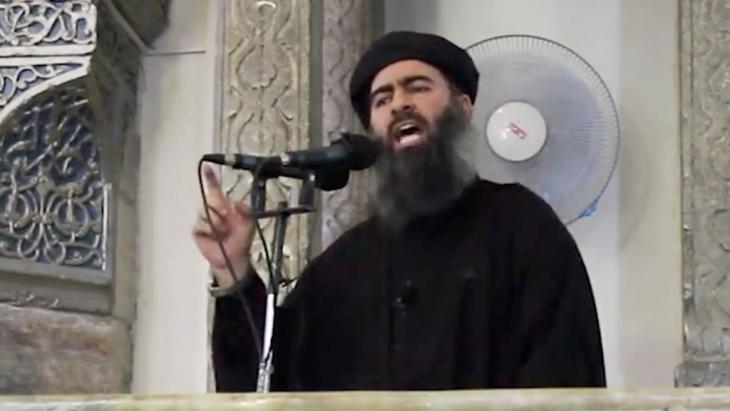No more shades of grey

Thus far, there has been little mention in the media of the fact that the jihadists are pursuing a particular strategic goal, one that they discuss quite openly. Their primary aim is to create a world of "black and white" - in Europe and elsewhere. They demand the elimination of any "grey areas". By this, they are referring to the coexistence of Muslims and non-Muslims. Their goal is to polarise Europe still further, in the hope of then being able to mobilise Muslims in Europe with their message of hate.
This idea of "eliminating the grey area" was discussed in detail in an article with this very title in the IS online magazine "Dabiq" following the attacks on the satirical magazine Charlie Hebdo in February last year - some considerable time therefore before the series of attacks in Paris last November and the latest in Brussels. In the English-language article, the world is divided into two camps, one of Islam with its new Caliphate at the helm and the "camp of the infidels" and the "crusader states". The article also quotes Bin Laden, who once agreed with George W. Bush's statement: "Either you are with us, or you are with the terrorists." Bin Laden's retort was, after all: "Are you with Islam or with the crusaders?"
No mercy for renegades

Muslims who don't fit into this scheme and who "belong to the grey area" must – according to the article's credo – be extinguished. This "grey area" was first shaken by the 9/11 attacks. Later, it was the Arab Spring that threatened the division of Europe as pursued by IS. An Arab Spring that the article says was driven by apostates – by people who had turned against their religion, but also by other sects or Shia Muslims, as in the case of the uprisings in Bahrain.
But, the line of argument continues in "Dabiq", since the emergence of the so-called "Islamic State" and the Caliphate, there has been no further excuse for Muslims not to take part in the war against the infidels. The establishment of the Caliphate has given each individual Muslim the sense of belonging to something bigger, says the article. Ergo: Muslims who conduct themselves neutrally within this polarisation, or who maintain their independence from jihad ideology, are branded as "sinners". Anyone who does not accept the IS take on Islam must be treated as a renegade from his religion.
So the attacks by IS on Brussels or Paris aim to divide Europe along Muslim and non-Muslim lines, thereby forcing Muslims into supporting their jihadist ideology. In the process, the jihadists hope to trigger a reaction from Europeans that leads to the isolation of its Muslim population, in the hope that these Muslims thus become easier to recruit for jihad.
Global call to arms
Last May, IS leader Abu Bakr al-Baghdadi issued an audio message calling on Muslims around the world to take up arms. In doing so, he was relying on a simple mechanism. The more Muslims who are marginalised, in Europe for example, the more receptive they will be to IS ideology.
"The crusaders claim they are not against the Muslim population as such, but that they only take action against those who are armed," Al-Baghdadi explained. But, his direct message to Muslims continued: "You will soon see that they are taking action against all Muslims. And when the crusaders monitor, arrest and interrogate Muslims in the nations of the crusade, they will soon begin to deport them, they will be dead, imprisoned or without a home. They will leave no one in peace, apart from those Muslims who are renegades from their religion and who follow theirs."
The writers of the article in the IS magazine have a clear conclusion ready: "At some point the grey area will have died out, then there will be no more room for the grey shades and their movements, but only the camp of the believers and that of the infidels."

Grist to the mill of the right-wing populists
Some IS statements find their equivalent in the views of right-wing populist movements in Europe aimed at dividing Europe into two camps and marginalising Muslims in a bid to save the West. In this respect, PEGIDA and the like are probably the best friends of IS in Europe. And an online manifesto by the Norwegian terrorist and Islam-hater Anders Breivik reads almost like an IS pamphlet from the opposing side in the battle of the civilisations.
After every series of attacks in Europe, just as now in Brussels, a debate ensues on how Europe can protect and defend itself. And now too, new security measures are being discussed that are necessary, but which will in the end not create any ultimate security. It is these security measures in particular that require sensitive handling if the radicalisation of another generation of young Muslims in Europe is to be avoided.
But Europe's most important political task is not to step into the black-and-white trap laid by IS, with which it hopes to tap a rich seam of recruits. The best antidote to IS's ideological poison remains the grey area of practised coexistence it detests so much.
Karim El-Gawhary
© Qantara.de 2016
Translated from the German by Nina Coon
